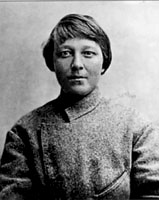
The Treaty on the Non-Proliferation of Nuclear Weapons, commonly known as the Non-Proliferation Treaty or NPT, is an international treaty whose objective is to prevent the spread of nuclear weapons and weapons technology, to promote cooperation in the peaceful uses of nuclear energy, and to further the goal of achieving nuclear disarmament and general and complete disarmament. Between 1965 and 1968, the treaty was negotiated by the Eighteen Nation Committee on Disarmament, a United Nations-sponsored organization based in Geneva, Switzerland.

Nuclear disarmament is the act of reducing or eliminating nuclear weapons. Its end state can also be a nuclear-weapons-free world, in which nuclear weapons are completely eliminated. The term denuclearization is also used to describe the process leading to complete nuclear disarmament.

Disarmament is the act of reducing, limiting, or abolishing weapons. Disarmament generally refers to a country's military or specific type of weaponry. Disarmament is often taken to mean total elimination of weapons of mass destruction, such as nuclear arms. General and Complete Disarmament was defined by the United Nations General Assembly as the elimination of all WMD, coupled with the “balanced reduction of armed forces and conventional armaments, based on the principle of undiminished security of the parties with a view to promoting or enhancing stability at a lower military level, taking into account the need of all States to protect their security.”
Geneva Conference may refer to:

William Scott Ritter Jr. is an American former United States Marine Corps intelligence officer, former United Nations Special Commission (UNSCOM) weapons inspector, author, and commentator. He is a convicted child sex offender.

United Nations Security Council resolution 1559, adopted on 2 September 2004, after recalling resolutions 425 (1978), 426 (1978), 520 (1982) and 1553 (2004) on the situation in Lebanon, the Council supported free and fair presidential elections in Lebanon, urging the Lebanese government to establish control over its territory, disarm militias like Hezbollah, and facilitate the withdrawal of any remaining foreign forces from the country.
The following lists events in the year 2003 in Iraq.
The Afghan New Beginnings Programme aimed to disarm, demobilise and reintegrate thousands of combatants from the Afghan Militia Forces/Afghan Army and provide them opportunities to join the Afghan National Army, Afghan National Police or an alternative line of work. The government of Afghanistan and the ANBP estimated that there might be 100,000 former combatants who could be integrated into civilian life.
Unilateral disarmament is a policy option, to renounce weapons without seeking equivalent concessions from one's actual or potential rivals. It was most commonly used in the twentieth century in the context of unilateral nuclear disarmament, a recurrent objective of peace movements in countries such as the United Kingdom.

Maria Hryhorivna Nikiforova was a Ukrainian anarchist partisan leader who led the Black Guards during the Ukrainian War of Independence, becoming widely renowned as an atamansha. A self-described terrorist from the age of 16, she was imprisoned for her activities in Russia before managing to escape to western Europe. With the outbreak of World War I, she took up the defencist line and joined the French Foreign Legion on the Macedonian front before returning to Ukraine with the outbreak of the 1917 Revolution.
Brigadier-General John Hartman Morgan was a British lawyer with expertise in constitutional law. He lectured and wrote on the topic, and he also joined military service during World War I.
Disarmament, demobilisation and reintegration (DDR), or disarmament, demobilisation, repatriation, reintegration and resettlement (DDRRR) are strategies used as a component of peace processes, and is generally the strategy employed by all UN Peacekeeping Operations following civil wars.

United Nations Security Council Resolution 1701 is a resolution that was intended to resolve the 2006 Lebanon War. The resolution calls for a full cessation of hostilities between Israel and Hezbollah, the withdrawal of Israeli forces from Lebanon to be replaced by Lebanese and UNIFIL forces deploying to southern Lebanon, and the disarmament of armed groups including Hezbollah, with no armed forces other than UNIFIL and Lebanese military south of the Litani River, which flows about 29 km (18 mi) north of the border. It emphasizes Lebanon's need to fully exert government control and calls for efforts to address the unconditional release of abducted Israeli soldiers.

The Conference for the Reduction and Limitation of Armaments, generally known as the Geneva Conference or World Disarmament Conference, was an international conference of states held in Geneva, Switzerland, between February 1932 and November 1934 to accomplish disarmament in accordance with the Covenant of the League of Nations. It was attended by 61 states, most of which were members of the League of Nations, but the USSR and the United States also attended.
After two decades of violence and civil war and after the Transitional Federal Government (TFG) of Somalia captured Mogadishu and Kismayo, the TFG attempted to disarm the militias of the country in late 2006. According to the UN/World Bank's Joint Needs Assessment (JNA) coordination secretariat, "the total estimated number of militias [militia members] to be demobilized is 53,000." In 2005, they estimated that "there are 11–15,000 militia people controlling Mogadishu ."
Many factions opposed to Siad Barre set aside tribal and political differences to unite in purpose to overthrow his regime. After the collapse of Siad Barre's government in 1991 the nation fell into a long period of increasingly chaotic conflict between forces of clans, militias, warlords, separatist, religious functions and rebellion movements, other nations, and even the United Nations peacekeepers.

The UN Office for Disarmament Affairs (UNODA) is an Office of the United Nations Secretariat established in January 1998 as the Department for Disarmament Affairs, part of United Nations Secretary-General Kofi Annan's plan to reform the UN as presented in his report to the General Assembly in July 1997.

Peace processes have taken place during several phases of the Afghanistan conflict, which has lasted since the 1978 Saur Revolution.
The disarmament of the Lou Nuer was a forcible disarmament campaign undertaken by the SPLA in Southern Sudan in December 2005. While other groups had been peacefully disarmed, the Lou section of the Nuer in Northern Jonglei State refused to comply. The SPLA organized a force under Peter Bol Kong to forcibly disarm the Lou Nuer, whose White Army resisted until a defeat in the battle of Motot, after which they fled the area.
Stop The Drop was an Australian benefit concert held at the Sidney Myer Music Bowl in Melbourne on 13 February 1983, in aid of the community organisation, People For Nuclear Disarmament (PND). Australian bands Midnight Oil, INXS, Goanna and Redgum, together with Colin Hay performed.









